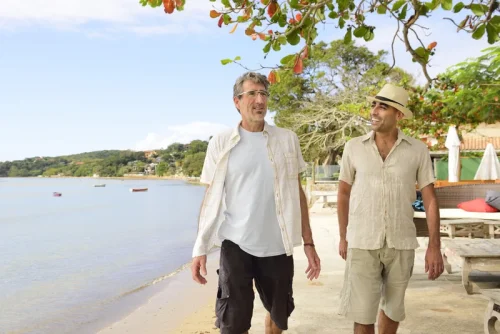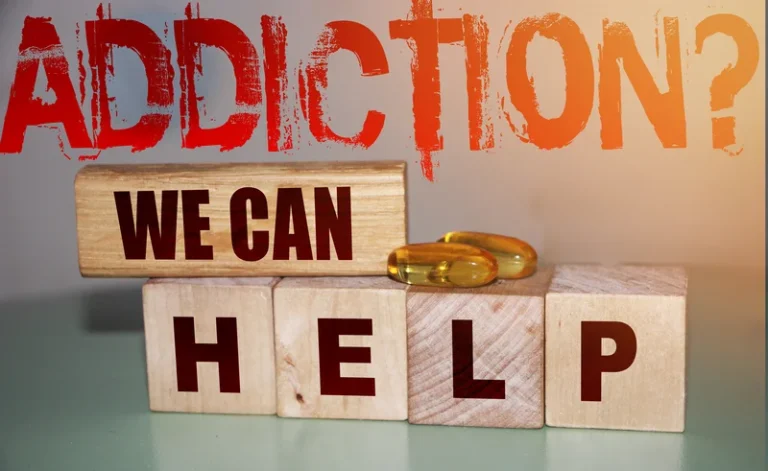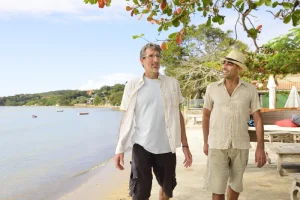
Outside of work, he finds solace in outdoor activities like hiking and woodworking. With his expertise, experience, and passion for helping others, David is an asset to the Freedom Center, empowering individuals on his recovery journey. The phenomenon of craving is central to understanding why addiction is more than just a bad habit—it’s a disease. As explained in the Big Book of Alcoholics Anonymous, this physical allergy makes it impossible for us to use alcohol or drugs in moderation. Once we take the first drink or drug, a chemical reaction triggers an uncontrollable desire for more. This reaction is unique to those of us struggling with substance use disorders, setting us apart from people who can casually use without consequence.
- In my own journey, I reached a moment of deep surrender in the driver’s seat of a borrowed car, realizing that nothing I had tried could break the cycle of addiction.
- She approaches her work with empathy, understanding, and non-judgment, recognizing that everyone’s path to healing is unique.
- This is part of our ongoing commitment to ensure FHE Health is trusted as a leader in mental health and addiction care.
- The accountability and encouragement in meetings and therapy break the power of secrecy where addiction thrives.
Work With a Counselor and/or Get an AA Sponsor

The impact of drugs and alcohol on your body over time renders your natural brain functions and mechanisms powerless. To acknowledge the way these substances have impacted your life is to admit that alcohol and drugs have made your life unmanageable and you can’t fix it on your own. Whatever the reason, admitting powerlessness is to say that practicing self-control does not undo the effects of drugs or alcohol on the brain.
- Then, you’re ready to believe you can manage your AUD with help from outside sources.
- Mary goes above and beyond to exceed expectations and is dedicated to outstanding service.
- “We admitted we were powerless over alcohol—that our lives had become unmanageable. We came to believe that a power greater than ourselves could restore us to sanity.”
- Deirdre graduated in 2012 from Pace University and completed her bachelor’s at Columbia University in New York and has her Master of Science in Family Nurse Practitioner.
“We admit we are powerless over alcohol – that our lives had become unmanageable.”

Enlightened Recovery is here to help you or your loved one overcome drug and alcohol addiction as well as co-occurring mental health disorders. Our holistic treatment programs treat the whole person in recovery. Cheryl is a Clinical Social Worker licensed by the state of Maryland with over 30 years of experience in the field. She graduated from The University of Maryland with a master’s degree in social work. Her experience in a variety of settings, from leadership in a hospital setting to private practice, affords Cheryl a well-rounded skillset ready to render top-notch care and serve the needs of our powerless over alcohol diverse community. As a licensed clinician, Cheryl stands ready to diagnose and treat a wide spectrum of mental, behavioral, and personality disorders that sometimes present alongside a substance use disorder.
Step

We admitted we were powerless over alcohol — that our lives had become unmanageable. When you admit that you are powerless to addiction, you are empowered to reach out for support. By admitting that your life has become unmanageable, you open yourself up to letting go of control and gain acceptance of yourself. In this context, it means that someone feels like they don’t have any control over their life. They may feel like they have little choice but to continue using drugs or alcohol because they lack alternatives. Therefore, lack of control over alcohol use is part of the disease of addiction; it is not that you have a lack of willpower to control your use.
- For those of us struggling with alcohol addiction or substance use disorders, the 1st Step marks the moment we let go of our attempts to control the uncontrollable.
- You might not be ready to take the first step at your first AA meeting, and that’s okay.
What is Admitting Powerlessness Over Alcohol or Drugs?
- I utilize a person-centered approach to my clients to help empower change within themselves.
- We all suffer from the same powerlessness over mood and mind-altering substances, people, places, and things.
- Erin has a master’s degree in management from University of Maryland, University College, and a bachelor’s degree in special education from Townson University.
- No matter how many times we tell ourselves, “This time will be different,” the mental obsession drives us back to the same destructive patterns.
- You know that alcohol is bad news for you, you are convinced, and nothing can make you return to drinking.
Without admitting powerlessness, the rest of the program cannot be fully https://ecosoberhouse.com/ embraced. This step is essential for breaking the illusion of control that somehow, someday, we will be able to drink or drug like normal people without losing control. We have to realize the truth that we can never use alcohol or drugs in any form again. For almost all of us, this is the moment when hope begins to replace despair, creating a foundation for meaningful change. For many addicted to alcohol and drugs, it’s difficult to admit the way addiction has made their lives unmanageable. The self-awareness that comes with realizing how bad things are and how damaging the substance abuse has been is how you can start to desire a better future for yourself.

When, “We admitted we were powerless over alcohol—that our lives had Sober living home become unmanageable,” we acknowledge the grip of addiction and open the door for a new way to live. This step is not about weakness but about accepting the truth about our disease of addiction and alcoholism so we can begin to break free from the cycle. At Spero Recovery, we understand how hard it can be to admit that you are powerless over the effects of drugs and alcohol on your life.
Understanding Addiction as a Physical Allergy
Philosopher William James and Carl Jung a Swiss psychiatrist also played a part in supporting the concepts of a spiritual (not necessarily religious) experience as part of recovery. Other 12-step programs include Al-Anon, Gamblers Anonymous, Overeaters Anonymous, Sexaholics Anonymous, and others. These groups use similar principles, but each has its own unique approach. This is because you still need to take action to overcome addiction. Step 1 is the first important step in recovery for many people because when you acknowledge that your alcohol use is no longer completely in your control, you can seek help. By taking this step, you acknowledge that your alcohol use has come to a point where you cannot control it.

